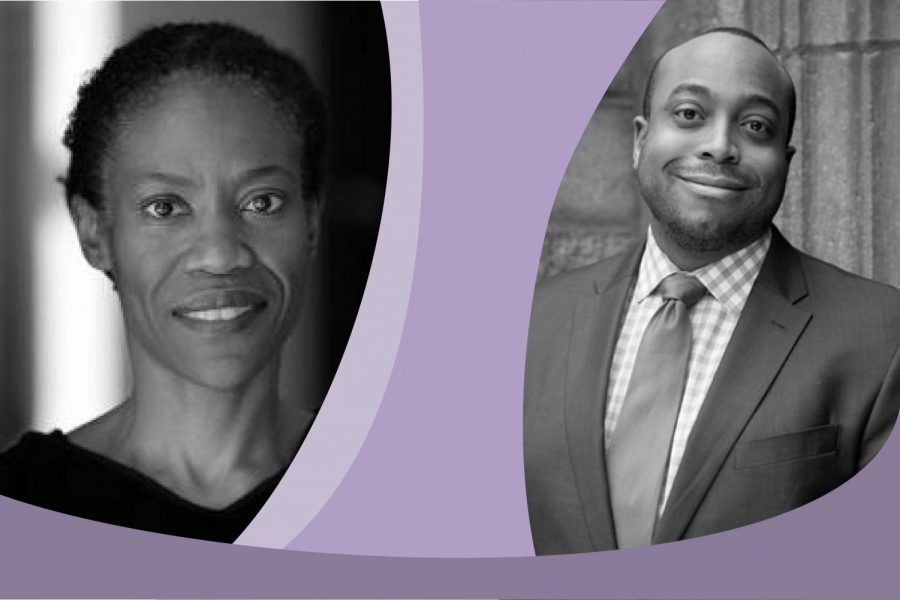Speakers talk diversity and inclusion in theatre in Black Arts Consortium event
In a Thursday evening event, speakers discussed diversity, equity and inclusion in the theatre industry.
April 29, 2021
The theatre community has begun to acknowledge racism and inequality as barriers of entry for people with marginalized identities, but there is still work that remains for diversity and inclusion in theatre.
This was the central topic of discussion in a Thursday event hosted by the Black Arts Consortium featuring Carmen Morgan, a Yale University faculty member and co-founder of artEquity — a national organization supporting the intersection of art and activism. She was joined at the event by Al Heartley, the managing director for Northwestern’s Wirtz Center for the Performing Arts.
“People are using the word racism and are identifying institutions as predominantly White,” Morgan said. “That didn’t exist before, and it does now, and it’s exciting to see because acknowledging that a problem exists is the first step towards taking the reparations needed to dismantle it.”
Heartley and Morgan denounced institutions that preach solidarity with marginalized communities during times of social uproar but then fail to bring about real change.
The pair criticized the lack of action taken by theatre institutions, including universities, production companies and theatres, following the murder of George Floyd. They said most institutions failed to go beyond just publishing messages of support and solidarity.
“(Institutions) say you care about Black folks, but we’re not represented on stage. You say you care about Black lives, but we’re not in leadership roles,” Heartley said. “You say you’re for inclusion, but every time we want you to invoke change you dismiss us.”
Morgan proposed ways to ensure these institutions prioritize equitable practices, noting the importance of listening to what young people have to say. She added that these priorities are difficult to maintain unless performing arts organizations hire people focused on preserving them.
Even if equitable practices are established, Morgan said all it takes is for those maintaining those establishments to leave for it to be dismantled once more.
“It only takes one or two right people to leave, and the culture goes right back,” Morgan said. “It’s got to be built into people’s expectations, their job description. They’ve got to be evaluated on it, and they’ve got to hire looking for this skill set.”
Following the conversation, moderator Sheridan Tucker Anderson thanked both Heartley and Morgan for their time, recognizing the work done on behalf of Morgan and artEquity.
Heartley and Morgan concluded by encouraging attendees to not try to change the system alone. Both emphasized that marginalized communities need to work together if they hope to be effective and bring about radical change.
“You cannot be isolated, find somebody else to join the struggle with you,” Morgan said. “You cannot hope to appeal to any systems of power by yourself, so find that community, those that come from the same marginalized background that you do.”
Emails: diegoramos-bechara2024@u.northwestern.edu
Twitters: @D_Ramos42
Related Stories:
— In Focus: One year after petition, Bienen students, faculty push to diversify music curriculum
— Community members continue to grieve George Floyd, say former police officer’s conviction is not enough
— Speakers discuss racial equity and prioritization in cultural institutions



